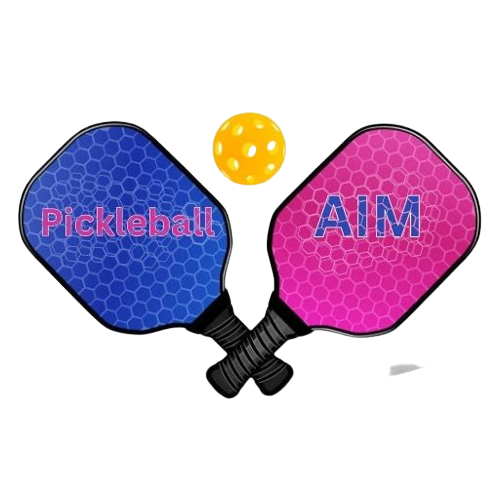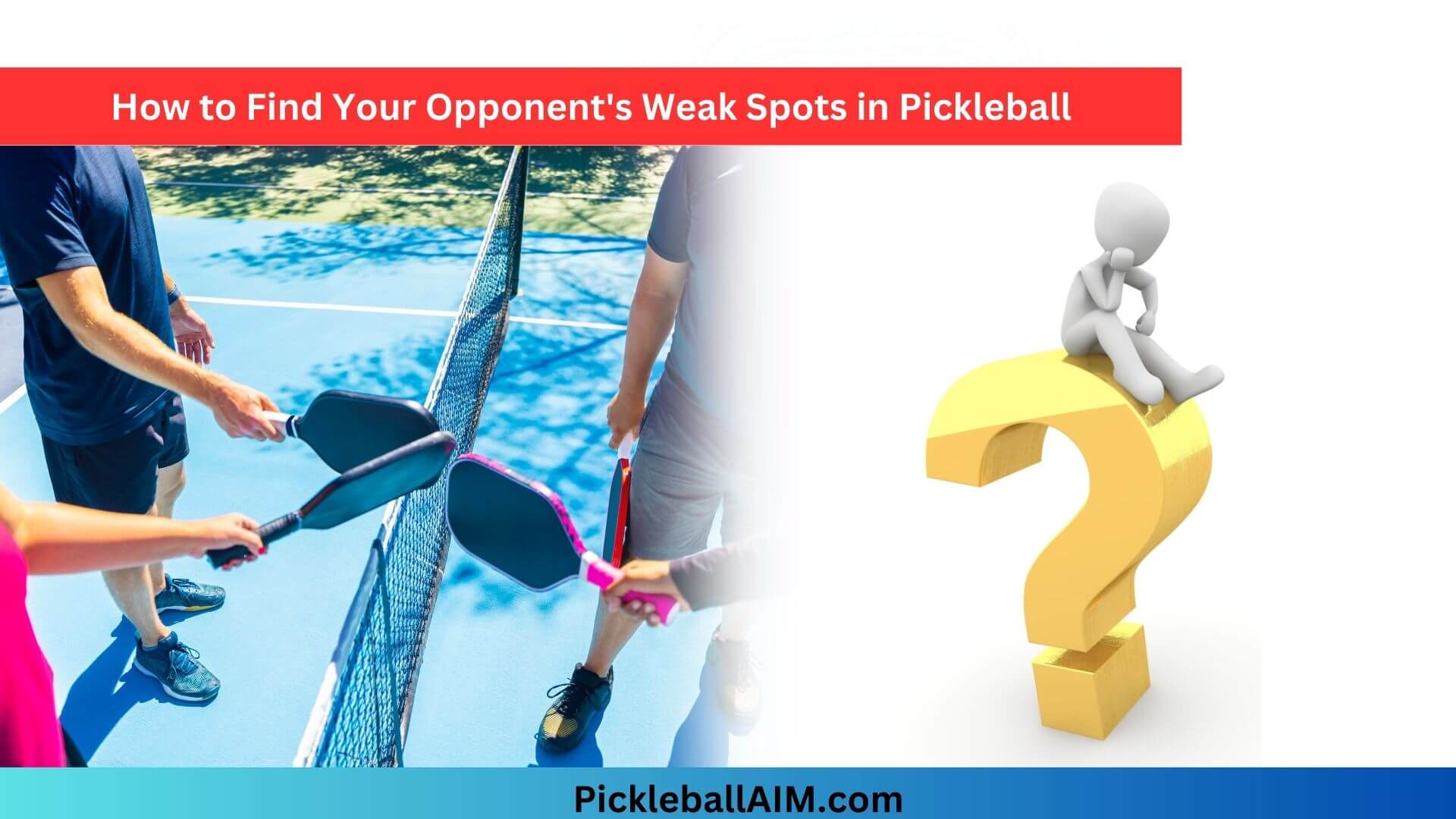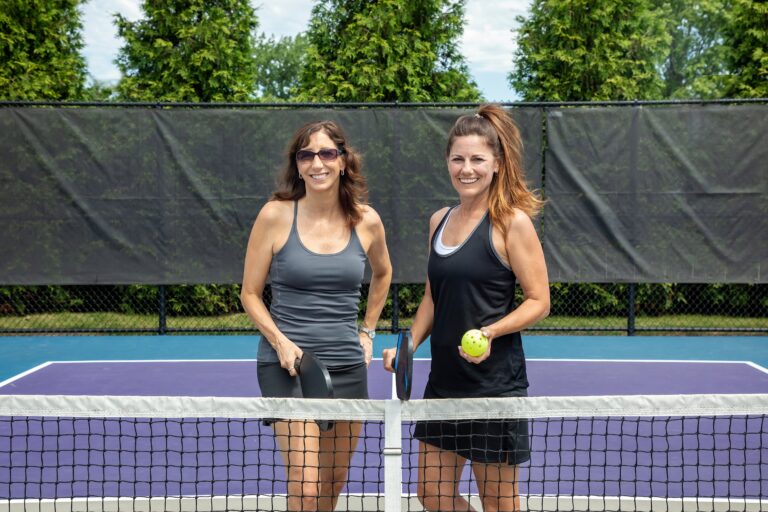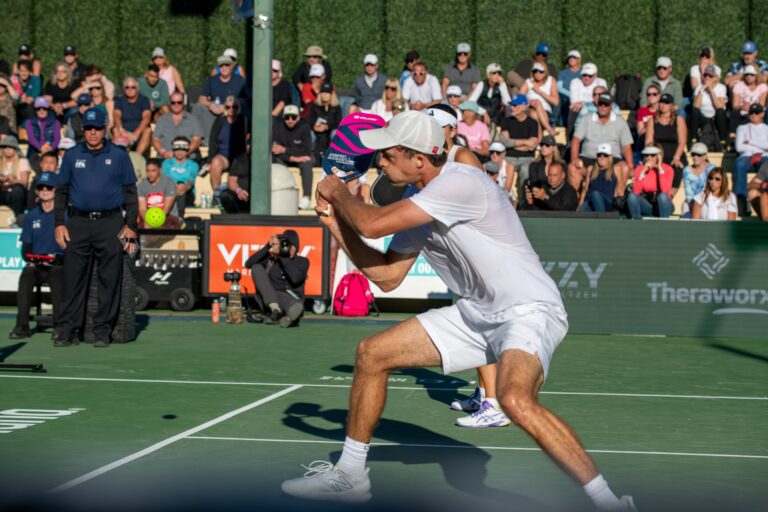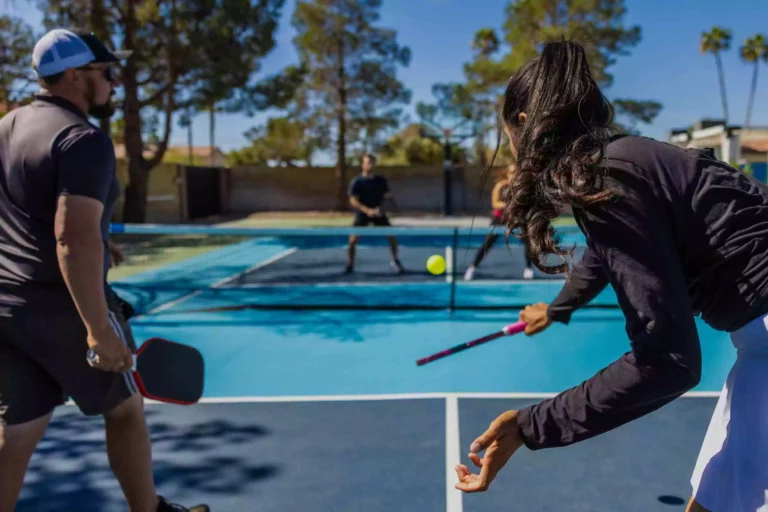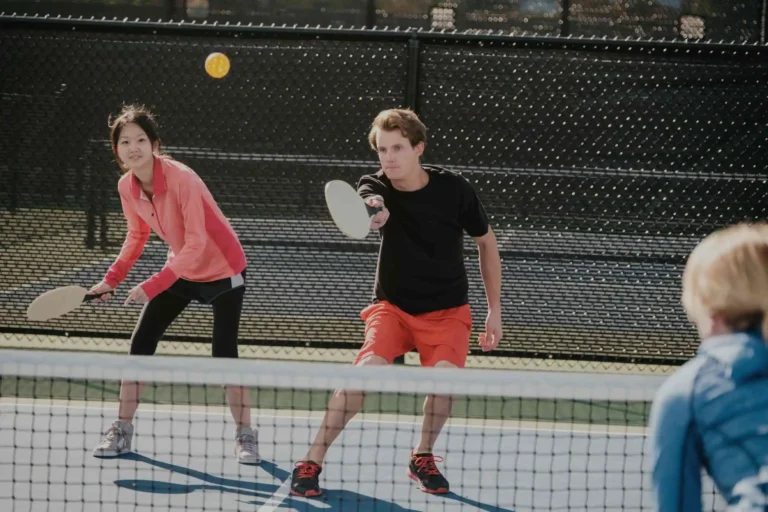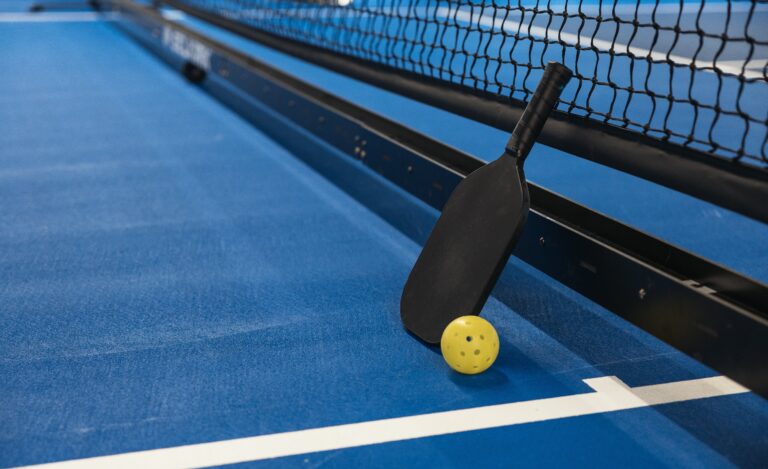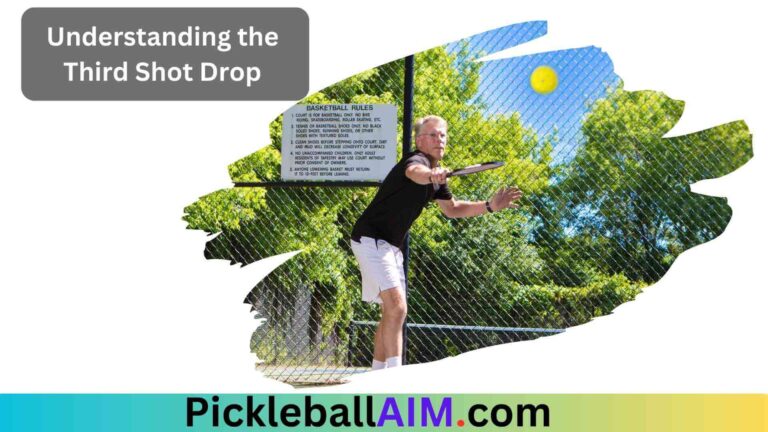How to Find Your Opponent’s Weak Spots in Pickleball
Pickleball, a sport that combines elements of tennis, badminton, and table tennis, has been steadily gaining popularity in recent years. While it’s known for being friendly and inclusive, like any sport, pickleball has its competitive side. One key to success in competitive pickleball is the ability to identify and exploit your opponent’s weaknesses. In this article, we’ll explore strategies and techniques to help you find and capitalize on your opponent’s weak spots on the pickleball court.
1. Observe Their Playing Style
The first step in finding your opponent’s weaknesses is to carefully observe their playing style. Pay attention to how they approach the game:
- Are they aggressive at the net or do they prefer to stay back?
- Do they have a strong backhand or forehand?
- How do they react to fast-paced rallies or lobs?
By understanding their style, you can start to anticipate their weaknesses and tailor your strategy accordingly.
2. Target Their Backhand
For many players, the backhand is the weaker side. Try directing your shots to your opponent’s backhand side to force them into less comfortable positions. This can be particularly effective in doubles play when you have a larger target area to exploit.
3. Mix Up Your Shots
Variety is a valuable asset in pickleball. Use a mix of shots like dinks, lobs, drives, and drop shots to keep your opponent guessing. If they struggle with high shots, employ lobs; if they struggle with low shots, use dinks to force errors.
4. Work the Kitchen Line
The non-volley zone, often referred to as the kitchen, is a crucial area to exploit your opponent’s weaknesses. Try to force them into hitting volleys or dinks while close to the net. Players who lack finesse at the net may make errors in this situation.
5. Serve Strategically
Your serve can be a powerful tool for finding weaknesses. Experiment with different types of serves, such as low, fast serves or high, spin serves. See how your opponent reacts and exploit any vulnerabilities you notice.
6. Take Advantage of Movement
Pickleball is a sport that demands agility and quick movement. If your opponent struggles with mobility, try to move them around the court by using drop shots, cross-court shots, and well-placed lobs. This can force them into awkward positions and lead to errors.
7. Mind Games
Psychological tactics can also be effective in identifying and exploiting weaknesses. For example, if you notice your opponent gets frustrated easily, try to maintain a calm and composed demeanor on the court. This can make them more prone to errors.
8. Adapt and Adjust
Remember that your opponent may also adjust their game to counter your strategies. Be prepared to adapt and change your tactics as the match progresses. Flexibility and the ability to readjust your game plan are key to success in competitive pickleball.
9. Practice and Improve Your Skills
Lastly, don’t forget to work on your own skills. The better your shot selection, accuracy, and court positioning, the more you can exploit your opponent’s weaknesses. Take lessons, practice regularly, and strive for continuous improvement in your own game.
The Mental Aspect: Staying Focused and Resilient
In the quest to find and exploit your opponent’s weak spots in pickleball, it’s essential not to overlook the mental aspect of the game. Maintaining focus, resilience, and a positive mindset can give you a significant advantage on the court.
1. Stay Composed
Pickleball can be an intense and fast-paced sport. It’s easy to get frustrated when your strategies don’t seem to work immediately. However, staying composed and patient is crucial. Keep in mind that even the best-laid plans take time to unfold. Be persistent in applying your tactics, and don’t let frustration cloud your judgment.
2. Learn from Mistakes
Mistakes are part of any sport, including pickleball. When your strategies don’t pan out as expected, use those moments as opportunities to learn. Analyze what went wrong, and consider how you can adjust your approach. Learning from your mistakes can help you refine your tactics and become a more formidable opponent over time.
3. Stay Focused on the Game
It’s easy to become distracted by factors outside the game, such as crowd noise, adverse weather conditions, or even the score itself. However, to exploit your opponent’s weak spots effectively, you must maintain unwavering focus on the match. Keep your attention on the court, your opponent, and your strategies.
4. Adaptability
The game of pickleball can be unpredictable, and your opponent may surprise you with their own adjustments. Be ready to adapt to changing circumstances. A flexible approach to your tactics and strategies will make you a more versatile and effective player.
5. Positive Self-Talk
Your inner dialogue can have a significant impact on your performance. Maintain a positive self-talk during the match. Encourage yourself when things go well and offer self-compassion when they don’t. A positive mindset can help you stay resilient in the face of adversity.
6. Respect Your Opponent
While you’re focused on finding weaknesses, remember to respect your opponent. Everyone has their strengths and weaknesses, and recognizing your opponent’s skill and effort can create a more positive and enjoyable atmosphere on the court.
7. Mental Preparation
Before you step onto the court, mentally prepare yourself for the match. Visualize your strategies, imagine yourself successfully executing shots, and mentally rehearse how you’ll respond to different situations. This mental preparation can boost your confidence and help you stay focused during the game.
Sportsmanship and Fair Play
In the world of pickleball, as in any sport, sportsmanship and fair play are of paramount importance. While the primary goal may be to win, it’s equally crucial to maintain respect for your opponent and the integrity of the game. Here’s how you can incorporate these values into your approach:
1. Respect Your Opponent
Regardless of your competitive intentions, always treat your opponent with respect and courtesy. Remember that both of you are there to enjoy the game. Avoid any behavior that could be perceived as unsportsmanlike, such as trash-talking, gloating, or attempting to distract your opponent.
2. Honor the Rules
Adhere to the rules of pickleball scrupulously. Even if you notice a rule violation by your opponent, it’s essential to allow the officials or referee to handle it. Challenging the rules during the game can lead to disputes and disrupt the flow of play.
3. Shake Hands Before and After
A simple handshake before and after the match is a sign of good sportsmanship. It shows respect for your opponent and the game itself. A friendly gesture can set a positive tone for the match, regardless of the outcome.
4. Control Your Emotions
Maintain emotional control on the court. While it’s natural to feel frustration or disappointment, avoid expressing it in ways that might be offensive or distracting to your opponent. Focus on channeling your emotions into your gameplay and strategies.
5. Compliment Good Shots
Acknowledge your opponent’s skill and good shots with a nod, a “nice shot,” or a smile. Recognizing your opponent’s strengths doesn’t take away from your competitiveness; it demonstrates your respect for their abilities.
6. Accept Victory and Defeat Gracefully
Win with humility and lose with dignity. A gracious winner and a gracious loser both contribute to a positive playing atmosphere. Remember that each match is an opportunity to learn and grow as a player.
7. Maintain Perspective
Pickleball is a sport, but it’s also a leisure activity meant to be enjoyed. Winning or losing a match does not define your worth as a person. Keep perspective and don’t let the outcome of a game affect your overall mood or self-esteem.
8. Encourage Others
Support and encourage your fellow players, especially newcomers or those who may be less experienced. Pickleball is a sport that welcomes players of all skill levels, and fostering a welcoming and supportive community benefits everyone.
9. Learn from Each Match
Whether you win or lose, view each match as an opportunity for personal growth and improvement. Reflect on your performance and strategies, and use each experience to become a better player and a better sportsman.
Conclusion
Pickleball is not just about finding and exploiting your opponent’s weak spots on the court; it’s also about fostering a sense of camaraderie, respect, and fair play. By incorporating sportsmanship into your approach to the game, you not only contribute to a positive playing environment but also enhance your overall enjoyment and satisfaction in the sport.
In the end, it’s the combination of strategic skill, mental resilience, and sportsmanship that truly elevates your pickleball experience. Whether you’re a competitive player or simply enjoy the sport for recreation, these values are the bedrock of a vibrant and thriving pickleball community. So, go out on the court, give your best, and play the game with honor, respect, and a love for the sport of pickleball.
